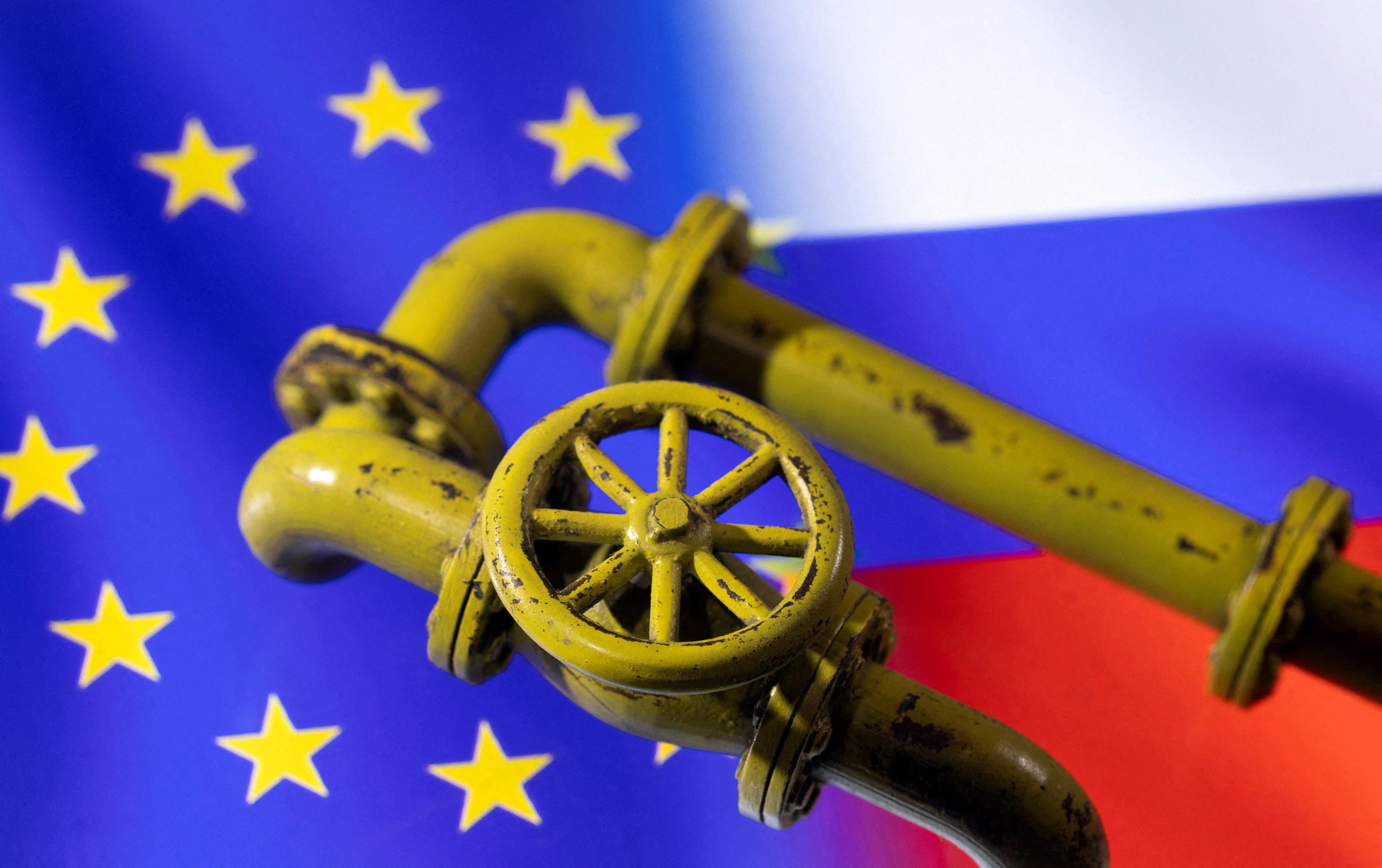The EU is preparing fresh sanctions against Russia in response to Ukraine’s accusation of Russian war crimes in the Kyiv suburb of Bucha. The new sanctions will likely build on previous ones, but this time Brussels could (finally) target Russian oil and coal.
In light of these gruesome revelations, EU leaders are now coming under even more pressure to ban Russian natural gas imports. The entire bloc will not agree to that, at least not in the short term. But individual EU member states might.
Lithuania — which seven years ago relied almost exclusively on Russian gas to keep the lights on — announced on Sunday that it has completely weaned itself off Russian imports. Will other EU countries follow suit? It depends, given that some are more dependent on Russian gas than others or are landlocked, which makes it harder to get alternative supplies.
Here are a few arguments for and against.
Arguments for banning Russian gas
There's growing popular pressure within Europe to punish Moscow — even in countries that are hooked on Russian gas. In a recent survey, most Poles supported banning Russian energy imports. A similar sentiment was shared by a majority of Germans in a YouGov survey in early March. European leaders are seeing the writing on the wall, even if they know voters won’t be happy when their electric bills go through the roof.
It could really hurt the Russian economy and by extension Vladimir Putin, who is already making it harder to buy Russian gas by demanding payment in rubles. Russia sells about 340million euros ($373.7 million) worth of gas per day to the bloc and has few options to reroute those shipments to other markets. Since gas exports to Europe account for over 2% of Russia’s GDP, bans would make a significant dent in Putin’s ability to finance Russia’s war machine.
Individual country bans could create a domino effect. The EU plans to reduce Russian gas imports by two-thirds in a year. But that could happen faster if individual countries do it on their own. If say a handful of EU member states join Lithuania's call to stop Russian imports now, that’ll put more pressure on the rest — including major importers like Italy or Germany — to push the bloc’s deadline forward.
It could take away Russia's future gas leverage. The Kremlin has gotten away with a lot vis-à-vis the EU because Putin has always calculated that the Europeans would never dare touch Russian gas. What if they do? Without fear of freezing during winter due to sky-high gas prices, Putin’s regular threats to cut off EU-bound gas when he doesn’t get his way will fall on deaf ears in Brussels.
Arguments against banning Russian gas
It could trigger a recession. Eurozone investor confidence is now at its lowest level since July 2020. Banning Russian gas imports will only increase the odds of a looming recession in the EU, which German Chancellor Olaf Scholz has consistently warned about when defending the exclusion of gas from Russian sanctions. Europeans losing their jobs in big numbers could turn the current tide of strong EU-wide popular support for helping Ukraine and punishing Russia.
Putin might consider it an act of war. When the notoriously pugnacious Russian leader is backed into a corner — like the rat in the story he loves to tell — he tends to lash out at his perceived enemies by doing very bad things. Like spreading the Ukraine conflict to EU/NATO territory by attacking weapons shipments from Poland or even using chemical weapons.
No one can step in to fill the gap in the immediate term. Both the US and Qatar, for instance, technically have the capacity to make up for the gas shortfall from Russia. Several EU countries have already signed deals with both to do just that, but the amount the Americans and the Qataris can send in the near term falls way short of what Russia currently supplies. Another option is Algeria, but talks with the EU have stalled due to Algeria's recent beef with Morocco and Spain over Western Sahara.
And then there's China. If a lot of Russian gas falls off the market overnight, Chinese firms will be more than happy to swoop in and buy it — at a steep discount. At a time when the EU and China are completely at odds over Ukraine, Brussels can hardly be eager to let Beijing gain even more economic muscle by giving the Chinese access to Russian gas at fire-sale prices.
What do you think? Please let us know here.- Macron likely to win French presidential election, yet too soon to call - GZERO Media ›
- France's presidential election tightening as first round begins - GZERO Media ›
- Weird stuff the US buys from Russia - GZERO Media ›
- Europe's heat wave highlights climate & energy dependence concerns - GZERO Media ›
- Europe's heat wave highlights climate & energy dependencies - GZERO Media ›
- How Putin’s war increased theft of car parts - GZERO Media ›
- European unity vs Putin, energy shortages, & economic pain - GZERO Media ›
- Who blew up the Nord Stream pipelines? - GZERO Media ›
- If the US steps back from Ukraine, can Europe go it alone? Ian Bremmer explains - GZERO Media ›
More For You
With close ties to both the US and China, can Singapore survive in an increasingly fragmented and chaotic world? Singapore’s President Tharman Shanmugaratnam joins Ian Bremmer on the GZERO World Podcast.
Most Popular
Think you know what's going on around the world? Here's your chance to prove it.
This week, Prime Minister Keir Starmer became the first UK leader to visit China in eight years. His goal was clear: build closer trade ties with Beijing.
